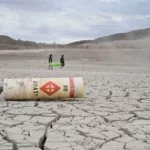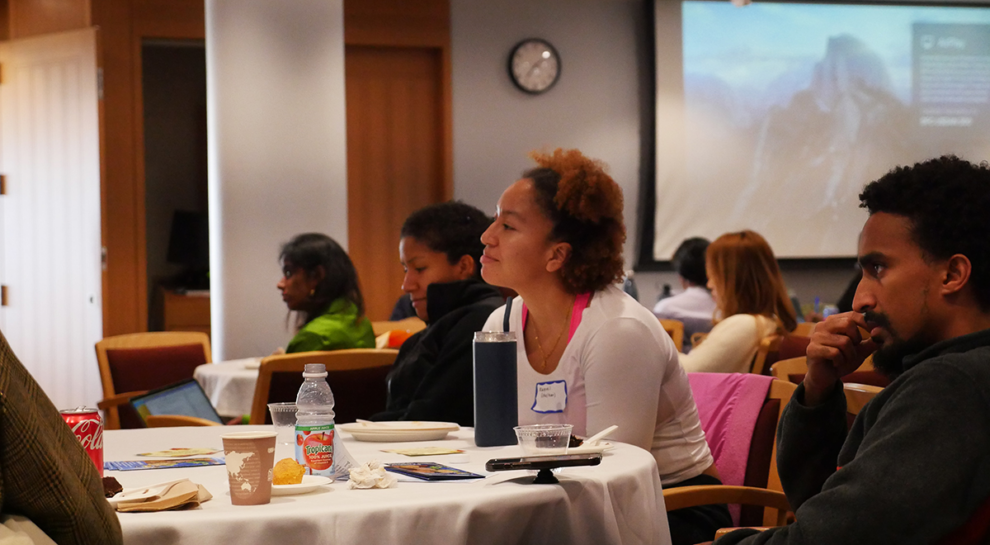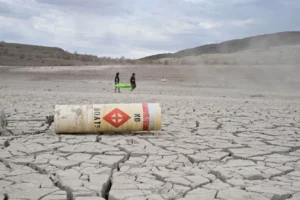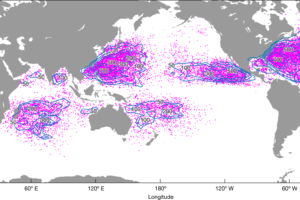On Saturday, November 11, the Bailey College of the Environment (COE) hosted “Mobilizing Power: Community Building for Environmental Justice,” an event which brought together individuals to exchange knowledge, build relationships and skills for community organizing, and collaborate on action for environmental justice.
Malana Rogers-Bursen, the Project Coordinator for Food Security, Environmental Justice, and Sustainability at COE, and Hannah Phan ’25 created the event along with a small group of student leaders and faculty from Sunrise Wesleyan, the Environmental Solidarity Network (ESN), the COE and the Office of Sustainability, as well as community leaders from Save the Sound, Sustainable CT, and the Connecticut Department of Energy and Environmental Protection (CT DEEP).
“We wanted participants to feel supported and seen amongst many others who share the same passions as them towards environmental justice,” Rogers-Bursen said. “Judging from the responses at the end of the day, many did say that they felt inspired, motivated, empowered, and hopeful. People felt they could take more action towards environmental justice in the state.”
The day featured two workshop sessions, as well as a panel discussion with three community leaders and a group conversation. Workshop topics included community conservation programming, food recovery, community organizing of transportation, finding funding, and using art to fuel resistance.
Panelist Sarah Huang, Office Director of Environmental Justice at CT DEEP, spoke to the ways in which the department is focusing on ensuring that individuals, no matter their race, age, or gender, are not left out of the process as the state and nation grapples with environmental change.
“Our agency and our office is really trying to engage members of [environmental justice] communities, environmental organizations to make sure that we’re really there to listen to what it is that folks are experiencing on the ground,” Huang said. “We’re making sure that that gets reflected back in the way that we’re running our programs and the way that our agency operates and in state government.”
Joseph Dickerson, DEEP’s Senior Advisor for Outdoor Equity, echoed Huang’s emphasis on the creation of safe spaces within environmental justice communities.
“We know that this is a time in which the world is inflamed,” Dickerson said. “We know that many attitudes and opinions and heartfelt meaningful desires are being crushed in many places… We’re here together as a joint family, because we believe that environmental injustice should not exist. We recognise how impactful the environmental justice movement can be in creating the world that we all want to live in together. But we have to be willing to talk with each other and be united in our efforts together.”
Rogers-Bursen and Phan hope that the event helped bring the community of Wesleyan University and its surrounding areas closer together through discussion. During her presentation, Ashley Stewart, Manager of Community Engagement at Connecticut Green Bank, also discussed the tangible action points individuals and organizations can take to address how climate change is impacting groups across the nation.
“We have focused on creating jobs in our community, for our communities and how to make our communities more resilient to the impacts of climate changes,” Stewart said. “That’s everything for us, because those that are most vulnerable have already felt climate impacts for years. So we want to make sure that’s foremost.”
Participants echoed the need for infrastructure and policy to reflect the needs of the people. Kimberly Stoner, Director of Advocacy at The Northeast Organic Farming Association of Connecticut, pointed to the court case Held v. Montana as an example of the power youth activists have when they join together and petition for the government-protected right to a clean and stable climate. The 2020 lawsuit sought a declaration of right under the Montana constitution to a stable climate system and to compel the state to reduce greenhouse gas emissions.
Stoner is currently working to collect signatures for a similar bill in the Connecticut legislature. “We hope the intergenerational and cross-sector connections fostered through this event will strengthen the environmental justice organizing across the state,” Rogers-Bursen said.
Source : newsletter.blogs.wesleyan.edu











Add Comment